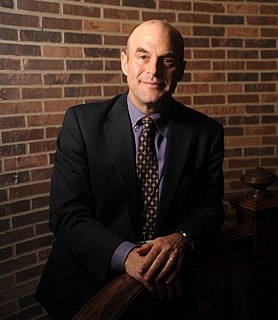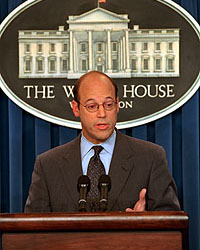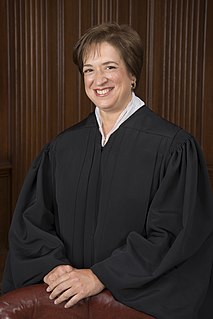A Quote by Jon Meacham
Justified or not, the Supreme Court has a kind of sacred status in American life. For whatever reason, Presidents can safely run against Congress, and vice versa, but I think there is an inherent popular aversion to assaults on the court itself. Perhaps it has to do with an instinctive belief that life needs umpires.
Related Quotes
Class warfare always sounds good. Taking action against the rich and the powerful and making 'em pay for what they do, it always sounds good. But that's not the job of the Supreme Court. The Supreme Court standing on the side of the American people? The Supreme Court adjudicates the law. The Supreme Court determines the constitutionality of things and other things. The Supreme Court's gotten way out of focus, in my opinion.
In fact, Native American Rights Fund has a project called the Supreme Court Project. And quite frankly, it's focused on trying to keep cases out of the Supreme Court. This Supreme Court, Justice Roberts is actually, hard to believe, was probably worse than the Rehnquist Court. If you look at the few decisions that it's issued.
The case of Johnson v. M'Intosh is exactly why Congress can pass legislation as it did with the Rio Tinto land mine deal because Congress took the land from the tribes, ignores their sacred connections to it, their cultural connections and does whatever it wants with it. Congress terminated tribal status for more than 100 tribes. Basically said, you're not a tribe anymore and we're not going to pay attention to the treaties. The Supreme Court has held that when Congress breaches a treaty with an Indian tribe it's not judicially reviewable. It's called a political question.
The notion that the Supreme Court comes up with the ruling and that automatically subjects the two other branches to following it defies everything there is about the three equal branches of government. The Supreme Court is not the supreme branch. And for God's sake, it isn't the Supreme Being. It is the Supreme Court.
I am very proud of our Supreme Court - it is one of the best worldwide. Nevertheless, since the 1990s, we have seen a certain imbalance in the relationship between the judiciary, the parliament and the government. The Supreme Court behaved in an activist way. We have to debate the degree to which such Supreme Court activism is appropriate.
Remember when John Roberts was seeking confirmation of the Supreme Court, and he said judges should be just like umpires, just calling balls and strikes? Well, turnabout is fair play. What baseball needs behind the plate are umpires like those judges who are called strict constructionists, which means you follow subtle law to the letter.


































